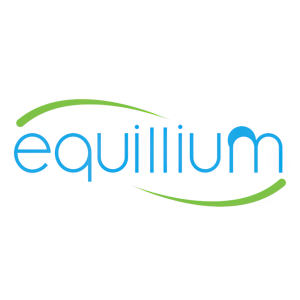Equillium Announces Oral Presentation at the Tandem Meetings of ASTCT and CIBMTR
Itolizumab was associated with high clinical response rates at Day 15 and 29
Responders were able to taper steroids by
Itolizumab being evaluated in pivotal Phase 3 EQUATOR study in first-line acute graft-versus-host disease
The oral presentation, given by Dr.
“Acute GVHD is a potentially lethal condition with no drugs approved for the first-line treatment setting,” said
Title: Final Safety and Efficacy Results from EQUATE, an Open-Label Study Evaluating Itolizumab, a Novel Targeted anti-CD6 Therapy, in Newly Diagnosed Acute Graft-Versus-Host Disease
Presenting Author: Dr.
Abstract ID Number: 36
Assigned Session: Oral Abstract - Session E: GVHD - Clinical
Key Highlights, Summary and Conclusions from Presentation:
- Itolizumab treatment in combination with systemic corticosteroids was associated with rapid and durable high rates of overall clinical response
- Response at Day 29 was associated with improved progression-free survival through 1 year
-
Responders were able to taper steroids by
70% at Day 29 and99% at Day 169 - Itolizumab was safe and well tolerated in severe aGVHD patients
- Itolizumab offers a favorable benefit-risk profile that supports evaluation in the pivotal Phase 3 study (EQUATOR), which has been initiated for the first-line treatment of aGVHD
The oral presentation is available on the Presentations page of Equillium’s website.
About Graft-Versus-Host Disease (GVHD)
GVHD is a multisystem disorder that is a common complication of allogeneic hematopoietic stem cell transplants (allo-HSCT) caused by the transplanted immune system recognizing and attacking the recipient’s body. Symptoms of GVHD include rash, itching, skin discoloration, nausea, vomiting, diarrhea, and jaundice, as well as eye dryness and irritation.
GVHD is the leading cause of non-relapse mortality in cancer patients receiving allo-HSCT, and its risk limits the number and type of patients receiving HSCT. GVHD results in high morbidity and mortality, with five-year survival of approximately
About the EQUATE Study
The EQUATE study is a Phase 1b/2 trial to evaluate the safety, tolerability, pharmacokinetics, pharmacodynamics and clinical activity of itolizumab for first-line treatment in patients who present with aGVHD (NCT03763318). The Phase 1b part of the trial is an open-label dose escalation study in adult patients who present with high-risk aGVHD and typically respond poorly to steroids. The Phase 1b data informed the selection of the dose being used in the EQUATOR pivotal Phase 3 study.
About Itolizumab
Itolizumab is a clinical-stage, first-in-class anti-CD6 monoclonal antibody that selectively targets the CD6-ALCAM signaling pathway to selectively downregulate pathogenic T effector cells while preserving T regulatory cells critical for maintaining a balanced immune response. This pathway plays a central role in modulating the activity and trafficking of T cells that drive a number of immuno-inflammatory diseases.
About
For more information, visit www.equilliumbio.com.
Forward Looking Statements
Statements contained in this press release regarding matters that are not historical facts are "forward-looking statements" within the meaning of the Private Securities Litigation Reform Act of 1995. Forward-looking statements may be identified by the use of words such as "anticipate", "believe", “could”, “continue”, "expect", "estimate", “may”, "plan", "outlook", “future” and "project" and other similar expressions that predict or indicate future events or trends or that are not statements of historical matters. Because such statements are subject to risks and uncertainties, many of which are outside of Equillium’s control, actual results may differ materially from those expressed or implied by such forward-looking statements. Such statements include, but are not limited to statements regarding the benefit of treating patients with aGVHD with itolizumab and Equillium’s plans for developing itolizumab. Risks that contribute to the uncertain nature of the forward-looking statements include: Equillium’s ability to execute its plans and strategies; risks related to performing clinical studies; whether the results from clinical studies will validate and support the safety and efficacy of Equillium’s product candidates; and risks related to Ono’s financial condition, willingness to continue to fund the development of itolizumab, and decision to exercise, if ever, its option to purchase itolizumab or terminate the asset purchase agreement. These and other risks and uncertainties are described more fully under the caption "Risk Factors" and elsewhere in
View source version on businesswire.com: https://www.businesswire.com/news/home/20230217005036/en/
Investor & Media Contact
Vice President, Investor Relations Officer & Head of Corporate Communications
619-302-4431
ir@equilliumbio.com
Source:







